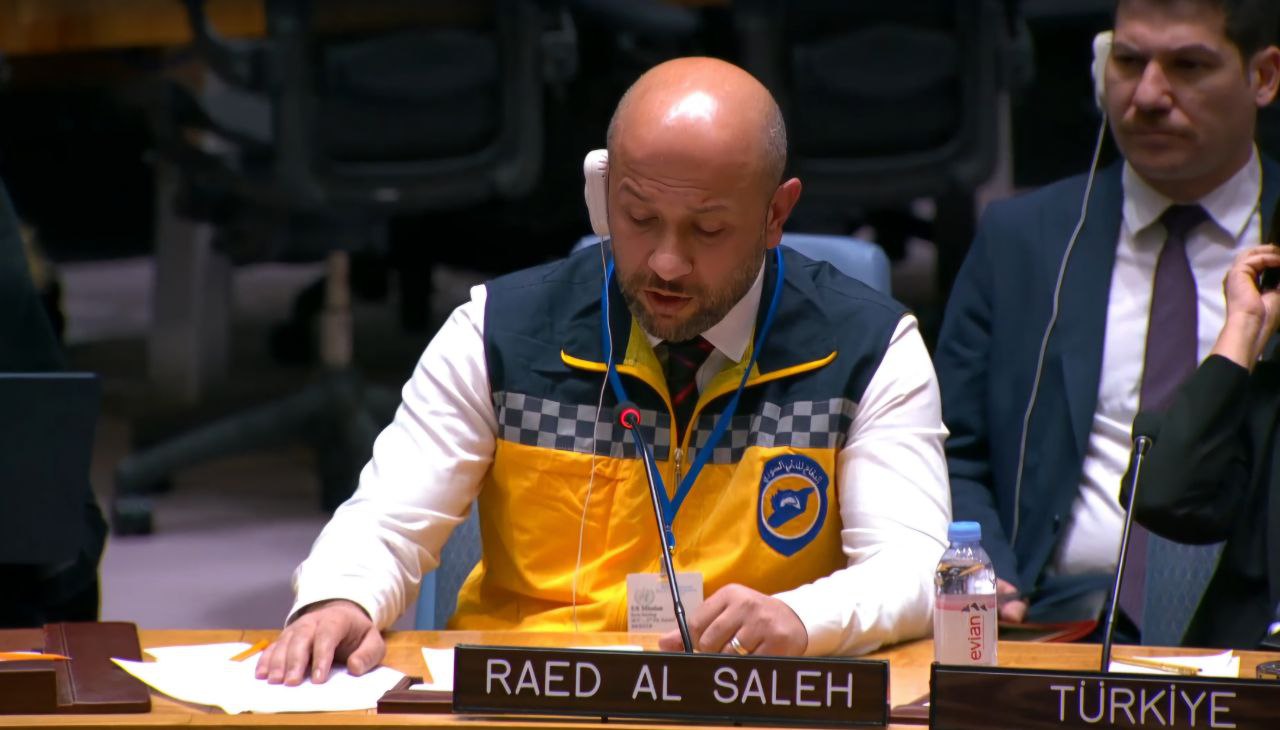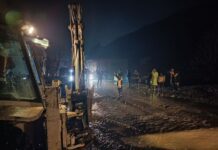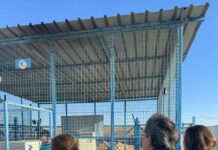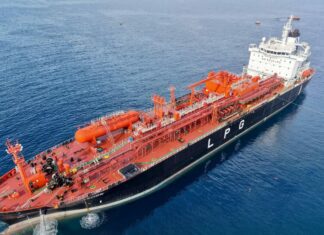
Raed Al-Saleh, director of the Syrian Civil Defense, commonly known as the White Helmets, delivered a powerful address at the UN Security Council’s special session on Syria Tuesday night. Despite initial objections from Russia and China, Al-Saleh detailed the ongoing humanitarian crisis caused by airstrikes and attacks by the Assad regime and its Russian ally.
“The representatives of the chemical regime do not belong in the Security Council,” Al-Saleh said, “but rather at the tables of the International Criminal Court for the crimes they have committed against the Syrian people over the past 14 years.”
Al-Saleh painted a grim picture of the Syrian landscape, describing 275 attacks over six days that killed at least 100 civilians, including 25 children, and injured over 360 others. Tens of thousands have been displaced amid intensifying violence in liberated areas of northern Syria.
“Yesterday was one of the bloodiest days in years,” Al-Saleh said, detailing the deliberate targeting of schools, hospitals, and camps for displaced persons. He highlighted the bombing of four hospitals in Idlib, including a maternity hospital, which led to the deaths of two patients after life-saving equipment failed due to the strikes. “These heinous crimes are a clear violation of international humanitarian law,” he declared.
Al-Saleh criticized the international community for its inaction, accusing the Security Council of failing the Syrian people for more than a decade. He emphasized that the root cause of the crisis is political, not humanitarian, and called for immediate action to push for a political solution in line with UN Security Council Resolution 2254.
“Syria has been a testing ground for impunity,” Al-Saleh said, drawing connections to global conflicts in Ukraine, Sudan, and Gaza, where perpetrators of atrocities have been emboldened by the lack of accountability in Syria.
He urged the international community to ensure civilian protection, end attacks on vital infrastructure, and provide a clear timeline for a political transition that includes dismantling drug networks and expelling cross-border militias.
Russia’s delegate, Vasily Nebenzia, opposed Al-Saleh’s invitation to the session, claiming it was done without proper consultation. Despite Russia’s attempt to block his participation, 11 Security Council members voted to hear from Al-Saleh. Russia and China opposed, while Algeria and Mozambique abstained.
In response to Russian accusations, Al-Saleh said, “The Syrian people deserve to be represented at this table by those who represent them,” asserting the White Helmets’ neutrality and commitment to serving all Syrians without discrimination.
Al-Saleh concluded his address by urging the global community, especially Arab nations, to support the Syrian people’s aspirations for freedom and justice. He denounced the Assad regime for turning Syria into a hub for terrorist militias and Captagon production. “Syria’s civilization is 7,000 years old,” he said. “But the Syrian regime has turned it into a passage for terror and a transit and manufacturing hub for drugs.”
In his closing remarks, Al-Saleh praised the resilience of Syrians across all regions, stating, “The Syrian people will not give up their right to justice or their dreams of building a dignified, peaceful homeland.” The session was a testament to the urgency of addressing Syria’s worsening crisis and the need for decisive international action to bring justice, accountability, and peace to the war-torn nation.








